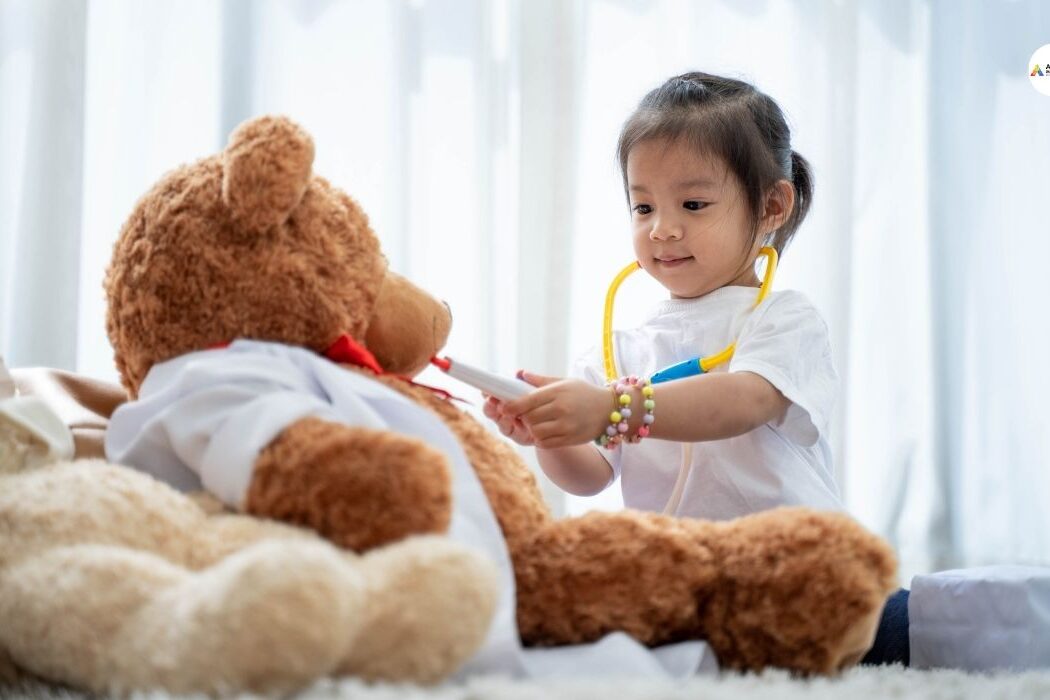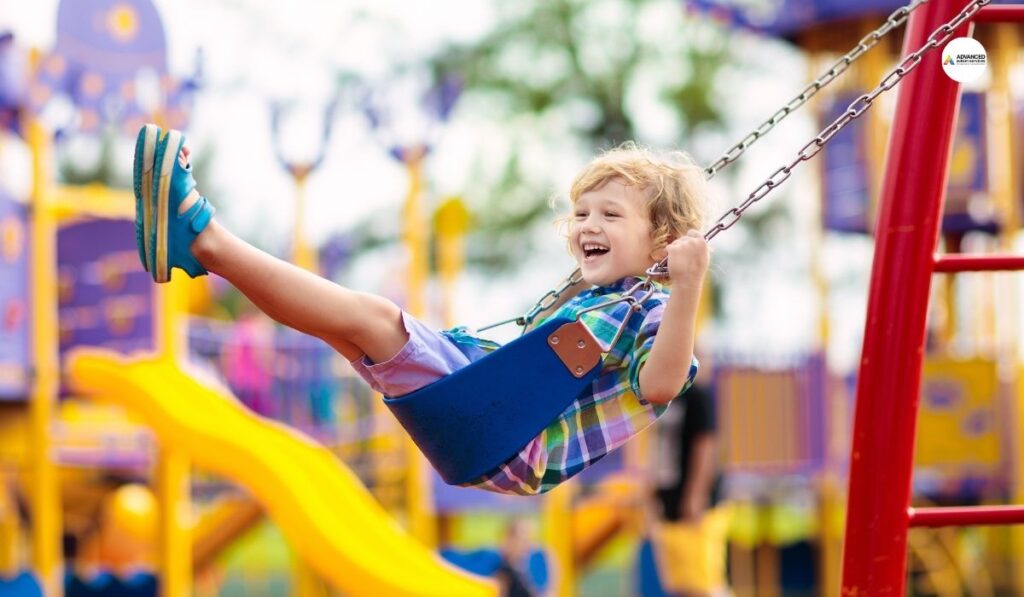In recent years, there has been a growing recognition of the profound impact of yoga and mindfulness practices on the well-being of individuals, particularly children with autism spectrum disorder (ASD). These holistic approaches offer a range of physical, emotional, and cognitive benefits, providing invaluable support for children navigating the complexities of autism. In this comprehensive guide, we delve into the myriad advantages of incorporating yoga and mindfulness into the lives of children with autism, shedding light on their transformative potential.
Understanding Autism Spectrum Disorder
Before delving into the benefits of yoga and mindfulness, it’s crucial to understand the unique challenges faced by children with autism spectrum disorder. ASD is a developmental condition characterized by difficulties in social interaction, communication, and repetitive behaviors. Each child with autism is unique, presenting with varying strengths and challenges, making individualized interventions essential for their well-being. ABA Therapy for Autism in Bethesda by the Advances Autism Center is one such intervention that aims to address specific needs of each child and promote positive outcomes.
Enhancing Physical Well-being
Improving Motor Skills and Coordination
Engaging in yoga practices can significantly enhance the physical well-being of children with autism. Through a series of gentle stretches and movements, yoga promotes flexibility, strength, and coordination. For children who may struggle with motor skills, yoga offers a safe and supportive environment to explore movement patterns and develop greater body awareness.
Promoting Relaxation and Stress Reduction
One of yoga’s hallmark features is its emphasis on relaxation and stress reduction. Children with autism may experience heightened levels of anxiety, making it challenging to regulate their emotions. By incorporating breathing exercises, relaxation techniques, and guided imagery, yoga helps children cultivate a sense of calmness and tranquility, enabling them to better cope with stressors in their environment.
Fostering Emotional Regulation
Cultivating Mindfulness and Self-awareness
Mindfulness practices are invaluable tools for fostering emotional regulation and self-awareness in children with autism. Through mindfulness meditation, breathing exercises, and body scans, children learn to tune into their thoughts and emotions with greater clarity and compassion. This heightened awareness enables them to identify and regulate their emotions more effectively, reducing meltdowns and promoting overall emotional well-being.
Building Resilience and Coping Skills
Yoga and mindfulness empower children with autism to build resilience and develop coping skills to navigate life’s challenges. By teaching them to approach difficult situations with curiosity, openness, and acceptance, these practices instill a sense of inner strength and confidence. As children learn to embrace the present moment and let go of worries about the future, they develop greater resilience in the face of adversity.
Cultivating Social Connections
Fostering Peer Interaction and Communication
Social interaction and communication can be significant areas of difficulty for children with autism. ABA therapy for autism Bethesda helps address these challenges by providing targeted interventions to improve social skills and communication abilities. Yoga and mindfulness offer unique opportunities for children to engage in structured activities with their peers in a supportive and nonjudgmental environment. Through partner poses, group activities, and mindful listening exercises, children learn to communicate effectively, collaborate with others, and develop meaningful connections.
Enhancing Empathy and Understanding
Yoga and mindfulness also foster empathy and understanding among children with autism, helping them recognize and appreciate the perspectives of others. By practicing compassion towards themselves and their peers, children learn to navigate social interactions with greater empathy, kindness, and respect. These skills lay the foundation for building meaningful relationships and fostering a sense of belonging within their communities.
Strengthening Cognitive Abilities
Improving Attention and Focus
Children with autism often struggle with attention and focus, making it challenging to engage in learning activities and academic tasks. Yoga and mindfulness practices offer practical strategies for improving concentration and attentional control. Through mindful movement, breathing exercises, and focused attention practices, children learn to sustain their attention on the present moment, enhancing their ability to focus on tasks and absorb new information.
Enhancing Executive Functioning Skills
Executive functioning refers to a set of cognitive processes that enable individuals to plan, organize, and regulate their behavior effectively. Children with autism may experience difficulties with executive functioning, which can impact their ability to manage tasks, follow routines, and solve problems. Yoga and mindfulness interventions target these areas by promoting self-regulation, cognitive flexibility, and impulse control, empowering children to navigate daily challenges with greater ease and efficiency.
Improving Body Awareness
Yoga and mindfulness promote greater body awareness, helping children with autism develop a deeper understanding of their bodies and how they move through space. Through proprioceptive and vestibular input, children learn to perceive and interpret receptive information from their muscles and joints, improving their coordination, balance, and spatial awareness. This increased body awareness not only enhances physical performance but also supports emotional regulation and self-esteem.
Encouraging Self-expression and Creativity
Nurturing Artistic Expression
Creative expression plays a vital role in the holistic development of children with autism, offering them a means of communication, self-expression, and self-discovery. Yoga and mindfulness provide a creative outlet for children to express themselves through movement, art, music, and storytelling. Whether through expressive yoga poses, mindful art activities, or improvisational dance, children have the opportunity to unleash their creativity, cultivate their imagination, and explore their unique identities.
Cultivating Mindful Creativity
Mindfulness practices foster a state of open awareness and receptivity, enabling children to tap into their innate creativity and imagination. By encouraging children to approach activities with a curious and nonjudgmental attitude, mindfulness cultivates a sense of playfulness and exploration. This mindful creativity extends beyond artistic endeavors, influencing problem-solving skills, critical thinking abilities, and innovative thinking in various aspects of children’s lives.
Empowering Parental Involvement
Strengthening Parent-child Bond
Yoga and mindfulness offer valuable opportunities for parents to bond with their children and actively participate in their well-being. Parent-child yoga classes provide a supportive environment for families to connect, share experiences, and engage in mindful activities together. By practicing yoga and mindfulness alongside their children, parents gain insight into their child’s strengths, challenges, and unique perspectives, fostering a more profound sense of empathy, understanding, and connection.
Building Coping Strategies for Families
Raising a child with autism can be challenging and overwhelming for families, often leading to stress, burnout, and feelings of isolation. Yoga and mindfulness offer practical tools and coping strategies for families to navigate these difficulties with greater resilience and stability. From relaxation techniques and stress management strategies to communication skills and conflict resolution strategies, families learn to support each other’s well-being and cultivate a sense of harmony and balance within the family unit.
Conclusion
In conclusion, the Integration of yoga and mindfulness into the lives of children with autism holds immense promise for promoting their holistic well-being. From supporting receptive Integration and fostering emotional regulation to nurturing creativity and empowering families, these practices offer a comprehensive approach to addressing the diverse needs of children with autism. By embracing the transformative power of yoga and mindfulness, we can create a more inclusive and compassionate world where every child has the opportunity to thrive and flourish.
For more information on how to incorporate yoga and mindfulness into your child’s routine or ABA therapy service in Bethesda for children with autism, please visit us at Advanced Autism Services.
FAQs
What is an autism spectrum disorder (ASD), and why is it important to understand it in the context of yoga and mindfulness?
Understanding ASD is crucial as it helps recognize the unique challenges faced by children with autism, such as difficulties in social interaction, communication, and repetitive behaviors. Tailoring interventions to individual needs is essential for their well-being.
How does yoga contribute to enhancing physical well-being in children with autism?
Yoga promotes physical well-being by improving motor skills, coordination, flexibility, and strength through gentle stretches, poses, and movements. It provides a safe environment for exploring movement patterns and developing body awareness.
How does yoga help in promoting relaxation and reducing stress for children with autism?
Yoga emphasizes relaxation and stress reduction through breathing exercises, relaxation techniques, and guided imagery. It helps children cultivate calmness and tranquility & enabling them to cope better with anxiety.
In what ways does mindfulness contribute to emotional regulation in children with autism?
Mindfulness practices like meditation, breathing exercises, and body scans foster emotional regulation and self-awareness. By tuning into their thoughts, emotions, and bodily sensations, children learn to identify and manage their emotions effectively, reducing meltdowns.
How do yoga and mindfulness help in building resilience and coping skills for children with autism?
These practices teach children to approach challenges with curiosity, openness, and acceptance, empowering them to develop inner strength and confidence. By embracing the present moment and letting go of worries, children build resilience in the face of adversity.
How do yoga and mindfulness facilitate social connections for children with autism?
Through structured activities in a supportive environment, children engage in peer interaction, communication, and collaboration. Partner poses, group activities, and mindful listening exercises promote effective communication and meaningful connections.
How do yoga and mindfulness foster empathy and understanding among children with autism?
By practicing compassion towards themselves and others, children learn to navigate social interactions with empathy, kindness, and respect. These skills lay the foundation for building meaningful relationships and a sense of belonging.




